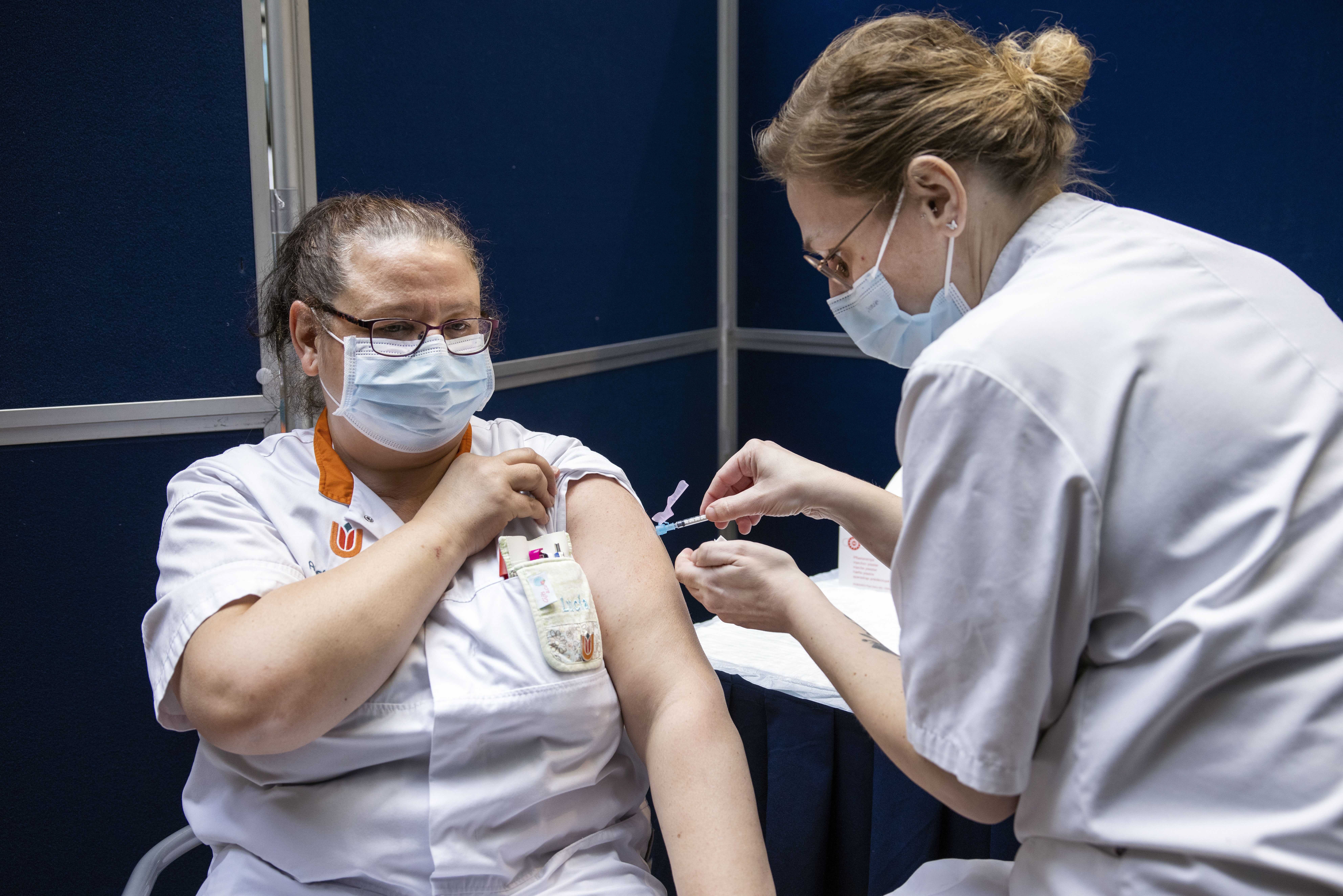Jobs for healthcare workers should be conditional on Covid jabs, ethicists say in BMJ
Experts claim ramifications of refusal and seriousness of coronavirus justify the move, Chiara Giordano reports

Healthcare workers should have to be vaccinated against coronavirus as a condition of their employment, a pair of ethicists have argued.
The experts, from the University of Melbourne and University of Oxford, say those refusing to be inoculated against Covid-19 should be temporarily redeployed away from frontline duties - and eventually even suspended if their refusal persists - unless they have a valid medical reason for not getting the jab.
In a peer-reviewed study, published in the British Medical Journal, the authors contend the ramifications of not getting vaccinated, coupled with the seriousness of the disease, “justify a mild form of mandatory vaccination policy at the very least”.
The government is already consulting on a similar plan to force care home staff working with older residents to get one of the Covid vaccinations on offer in the UK.
Study authors, Dr Owen Bradfield and Dr Alberto Giubilini, claim experience of the seasonal flu jab shows coercive approaches effectively increase uptake among healthcare workers and reduce the numbers of patients getting sick – if properly implemented.
However, they also note overly coercive regulation can undermine goodwill between frontline healthcare staff and their employers and promote resentment, opposition and mistrust.
They therefore suggest any potential policy should strike a fine balance.
“From an ethical perspective, what matters is that the collective benefits outweigh the risks, and that there is some limit to the kind of risks that can be imposed for the sake of those collective benefits,” the authors wrote in the study in the Journal of Medical Ethics.
The experts developed an “intervention ladder” for Covid-19 vaccination policies for frontline healthcare workers, which ranks possible measures from “least to most coercive”.
At the bottom of the ladder, the least restrictive measure is no intervention, while persuasion and nudging in the form of opt-out policies represent the next rungs up in the ladder, and forced vaccination sits at the top.
The authors argue that while frontline healthcare workers can choose between vaccination and their job, patients are unable to choose whether or not they get sick, nor who cares for them when sick.
They might have no alternative but to be treated and cared for by unvaccinated staff, the authors note.
The experts therefore argue the restriction on choice experienced by sick patients if no mandatory vaccination is imposed on frontline healthcare workers could be greater than the restriction experienced by staff if such a policy is imposed.
“Within healthcare settings, vaccine choices can have even greater ramifications, which, when coupled with the seriousness of Covid-19, justifies at least a mild form of mandatory vaccination policy,” they concluded.
“We believe that this should take the form of conditional employment or conditional professional registration, although temporary redeployment could be adopted if this does not entail significant costs to patients, to vaccinated colleagues and to the healthcare system.
“This ’conditional’ policy is a compromise between entirely voluntary or entirely mandatory policies for healthcare workers, and is consistent with healthcare workers’ established professional, legal, and ethical obligations to their patients and to society at large.”
“In our view, this strikes the best balance between the various ethical principles at stake.”




Join our commenting forum
Join thought-provoking conversations, follow other Independent readers and see their replies
Comments